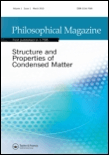
PHILOSOPHICAL MAGAZINE
metrics 2024
Exploring the Depths of Condensed Matter Physics
Introduction
PHILOSOPHICAL MAGAZINE, published by Taylor & Francis Ltd, is a distinguished journal that focuses on the field of Condensed Matter Physics. With an ISSN of 1478-6435 and an E-ISSN of 1478-6443, this journal serves as a vital platform for researchers and professionals seeking to disseminate and access cutting-edge research and developments in the field. Currently ranked in the Q3 category within its discipline according to the 2023 quartiles, and positioned at the 45th percentile in Scopus rankings, PHILOSOPHICAL MAGAZINE is recognized for its significant contributions to theoretical and experimental physics. The journal embraces open access options, enhancing its reach and accessibility to a global audience. With coverage spanning from 2003 through 2024, it remains a cornerstone for scholars and students who aim to deepen their understanding of the complexities within condensed matter systems. For anyone engaged in the physical sciences, PHILOSOPHICAL MAGAZINE offers invaluable insights and fosters an environment of rigorous academic inquiry.
Metrics 2024
 0.37
0.37 1.50
1.50 1.70
1.70 125
125Metrics History
Rank 2024
Scopus
IF (Web Of Science)
JCI (Web Of Science)
Quartile History
Similar Journals

LIQUID CRYSTALS
Illuminating the Science of Liquid CrystalsLIQUID CRYSTALS, published by Taylor & Francis Ltd, is a premier academic journal dedicated to the interdisciplinary study of liquid crystal materials and their applications. Established in 1986, this journal has become a vital platform for researchers and professionals alike, contributing to advancements in chemistry, condensed matter physics, and materials science, as reflected in its notable impact factors and ranked status in multiple categories, including Q2 in Chemistry and Q3 in Condensed Matter Physics as of 2023. With a focus on innovative research and practical applications, LIQUID CRYSTALS spans a broad spectrum of topics, including but not limited to liquid crystal displays, photonics, and soft matter physics, making it an essential resource for those exploring the frontiers of liquid crystal technology. While the journal operates under a traditional access model, the rich insights and cutting-edge findings it publishes serve to greatly benefit researchers, professionals, and students in the field. Access the journal's content to stay updated on groundbreaking developments from 1986 to 2024 and join a community committed to scientific excellence.

Condensed Matter
Exploring the Frontiers of MatterCondensed Matter is a leading open-access journal dedicated to the diverse and dynamic field of condensed matter physics, published by MDPI since 2016. With its base in Switzerland, the journal aims to present a platform for researchers and professionals to share innovative findings and advancements in areas such as electronic, optical, and magnetic materials. As of 2023, it is ranked in the Q3 category for both condensed matter physics and electronic, optical, and magnetic materials, a testament to its relevance and growth within the scientific community. Researchers will find valuable insights through its accessible format, fostering collaboration and knowledge dissemination within this interdisciplinary field. With a commitment to enhancing the global dialogue in condensed matter studies, Condensed Matter invites contributions that explore theoretical and experimental approaches, thus pushing the boundaries of understanding in this crucial area of science.

Journal of Superconductivity and Novel Magnetism
Unveiling the Mysteries of Superconducting MaterialsJournal of Superconductivity and Novel Magnetism, published by SPRINGER, is a premier venue for research in the dynamic fields of condensed matter physics and materials science. With an ISSN of 1557-1939 and an E-ISSN of 1557-1947, this journal provides an essential platform for disseminating innovative studies examining the complexities of superconductivity and magnetic phenomena. The journal is recognized for its contributions, holding a Q3 quartile ranking in both condensed matter physics and electronic, optical, and magnetic materials as of 2023. With a commitment to rigor and relevance, it features research that breaks new ground in understanding the properties and applications of superconducting materials, aiming to bridge fundamental science with technological advancements. Despite its lack of open access, the journal remains pivotal for researchers, professionals, and students keen to stay abreast of cutting-edge developments in the field, making it an indispensable resource for cultivating knowledge and promoting collaboration.
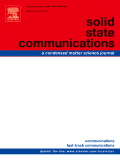
SOLID STATE COMMUNICATIONS
Advancing Knowledge in Chemistry and PhysicsSOLID STATE COMMUNICATIONS is a prestigious journal published by Pergamon-Elsevier Science Ltd, dedicated to disseminating cutting-edge research in the fields of Chemistry, Condensed Matter Physics, and Materials Chemistry. With an ISSN of 0038-1098 and an E-ISSN of 1879-2766, the journal has established itself as a vital resource for researchers and professionals seeking to explore the fundamental properties and innovative applications of solid-state materials. As of 2023, it boasts a commendable standing, ranking in the Q2 quartile across its various categories, reflecting its impactful contributions to the scientific community. The journal is indexed in Scopus, further validating its relevance and quality, with notable ranks close to the median percentile in key areas. While SOLID STATE COMMUNICATIONS does not currently offer Open Access options, it remains a highly regarded source for rigorous scientific inquiry and open discussions, with a publication history dating back to 1963 and continuing to 2024. The journal serves as an essential platform for disseminating groundbreaking findings and fostering collaboration within the vibrant fields of solid state science.

Journal of Advanced Dielectrics
Bridging Theory and Application in Material ScienceThe Journal of Advanced Dielectrics, published by World Scientific Publishing Co Pte Ltd, is a pivotal open-access platform since 2014 dedicated to advancing research in the fields of dielectrics, ceramics, and composites. Based in Singapore, this journal aims to bridge the gap between theoretical developments and practical applications in Electrical and Electronic Engineering, Condensed Matter Physics, and Electronic, Optical, and Magnetic Materials. With an impressive classification in the 2023 Quartile Rankings indicating its significance within its categories, and notable Scopus Rankings that highlight its impact and relevance, this journal serves as a vital resource for scholars and professionals committed to cutting-edge research and innovation. As it continues to flourish through the converging years from 2015 to 2024, the Journal of Advanced Dielectrics stands as an essential conduit for the dissemination of knowledge in advanced material sciences, making it an indispensable asset for today's research community.
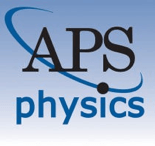
PHYSICAL REVIEW B
Pioneering Research in Condensed Matter DynamicsPHYSICAL REVIEW B, published by the American Physical Society, is a leading journal in the field of condensed matter physics and materials science, particularly focusing on electronic, optical, and magnetic materials. With an ISSN of 2469-9950 and an E-ISSN of 2469-9969, this periodical has garnered a prestigious reputation, achieving a Q1 ranking in both relevant categories as of 2023. The journal has recorded significant impact as reflected in its Scopus ranks, notably positioned at #95 out of 434 in Condensed Matter Physics and #75 out of 284 in the Materials Science sector, illustrating its importance in advancing research and discussions in these critical areas. Although it does not offer open access, PHYSICAL REVIEW B remains an invaluable resource for academics, researchers, and professionals seeking to increase their understanding of contemporary issues in condensed matter and material sciences. Established in 2005, this journal continues to foster innovation and dissemination of knowledge, making it a cornerstone publication for those engaged in cutting-edge research.

Crystals
Fostering Collaboration in Multidisciplinary ResearchCrystals is a premier open-access journal, published by MDPI since 2011, that focuses on the multidisciplinary fields of chemical engineering, condensed matter physics, inorganic chemistry, and materials science. With its E-ISSN 2073-4352, the journal is headquartered in Switzerland, and actively contributes to the global scientific community by facilitating the dissemination of high-quality research. Ranking in the Q2 quartile across multiple categories, including Chemical Engineering (miscellaneous) and Materials Science (miscellaneous) for 2023, Crystals provides a platform for innovative studies that span from fundamental research to practical applications. The journal's commitment to open access ensures that groundbreaking findings are readily available to researchers, professionals, and students alike, fostering an environment of collaboration and knowledge sharing that is essential in advancing the scientific understanding of crystalline materials.
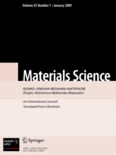
MATERIALS SCIENCE
Exploring Breakthroughs in Materials Research.MATERIALS SCIENCE, a prominent journal published by SPRINGER, serves as a vital resource for researchers, professionals, and students in the fields of materials science, mechanical engineering, and condensed matter physics. With its ISSN 1068-820X and E-ISSN 1573-885X, this journal has been dedicated to sharing innovative research since its inception in 1993, and it continues to publish groundbreaking findings through 2024. Although it operates as a traditional subscription-based journal, its ranking in the Q3 quartile across multiple scientific categories, including Condensed Matter Physics, Materials Science, Mechanical Engineering, and Mechanics of Materials, signifies its relevance and impact in the academic community. Notably, its Scopus classifications reveal a competitive standing among its peers, ranking within the 25th to 33rd percentiles across various engineering and physics disciplines. The journal remains a key platform for disseminating valuable insights, fostering collaboration, and advancing the understanding of materials science.

MATERIALS SCIENCE-POLAND
Pioneering Research in Materials ScienceMATERIALS SCIENCE-POLAND, published by SCIENDO, is an esteemed open access journal dedicated to the rapidly evolving field of materials science. Since its inception in 2002 and transitioning to an open access model in 2015, the journal has been a vital platform for researchers and professionals to disseminate their findings and contribute to the scientific community. With an ISSN of 2083-134X and an E-ISSN of 2083-134X, it spans a comprehensive range of disciplines, focusing on condensed matter physics, materials science, and mechanical engineering among others. In the 2023 rankings, it holds a position in the Q4 and Q3 quartiles across various categories, showcasing its relevance and ongoing contribution to these fields. Researchers benefit from its accessibility, enabling wider reach and engagement with contemporary topics in material innovation and applications. As the journal continues to evolve until 2024, it remains a cornerstone for scholars looking to advance their knowledge and research in materials science.
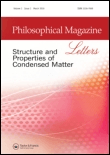
PHILOSOPHICAL MAGAZINE LETTERS
Innovating Research, Unveiling New RealitiesPHILOSOPHICAL MAGAZINE LETTERS, published by Taylor & Francis Ltd, is a prestigious open-access journal dedicated to the vibrant field of Condensed Matter Physics. With an ISSN of 0950-0839 and an E-ISSN of 1362-3036, the journal has been a pivotal platform for disseminating crucial research findings since its inception in 1981. As of 2023, it transitioned to open access, enhancing visibility and accessibility for researchers worldwide. Located in the United Kingdom, it holds a rank of #268 out of 434 in the field, placing it in the 38th percentile for its category. Its recent categorization as Q3 in Condensed Matter Physics reflects its commitment to advancing knowledge through rigorous peer-reviewed articles. The journal welcomes contributions that push the boundaries of understanding in condensed matter, fostering innovation and collaboration among physicists, professionals, and students alike. Explore groundbreaking research and join a community dedicated to the exploration of the fundamental properties of matter.